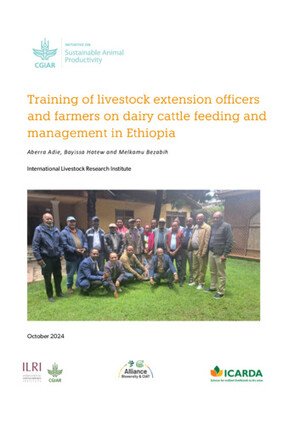
Effects of ensiling cassava peels on some fermentation characteristics and growth performance of sheep on-farm
Abstract
This study determined the effect of drying or ensiling cassava peels on some conservation characteristics and growth performance of sheep. Fresh peels were either sun-dried to a DM of 904 g/kg or ensiled for 45 days for determination of some chemical and microbial characteristics, and growth performance of sheep. 45 Djallonké sheep were randomly assigned to three supplementary dietary treatments (Control and dried or ensiled) and fed for 70 days. Ensiling reduced the pH from 5.65 in the fresh peel to 4.15 compared to 6.15 in the dried peel. Crude protein (CP) increased from 45±0.44 g/kg DM in the fresh peel to 46±0.48 and 52±0.88 g/kg DM in the dried and ensiled peel, respectively. Reduction in neutral detergent fibre concentration was greater by ensiling than by drying. However, a greater (P = 0.001) reduction in HCN concentration was achieved by drying than by ensiling. Moulds were greater (P = 0.011) in the ensiled than dry peels. Average daily weight gain was higher (P = 0.031) for sheep offered the ensiled than the dried or Control diet. In conclusion, sun-drying was more effective at reducing HCN concentration whereas ensiling improved the CP content of cassava peels and growth performance of sheep.
Citation
Niayale, R., Addah, W. and Ayantunde, A.A. 2020. Effects of ensiling cassava peels on some fermentation characteristics and growth performance of sheep on-farm. Ghana Journal of Agricultural Science 55(2): 107–121.









